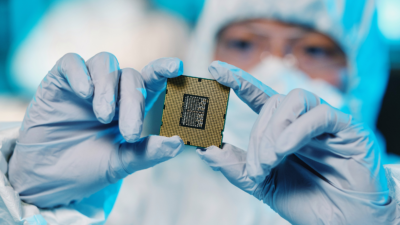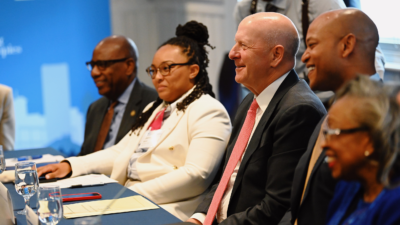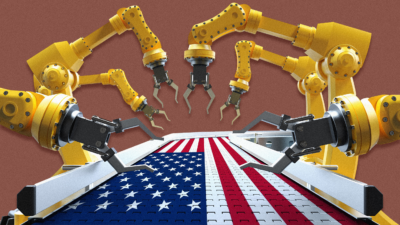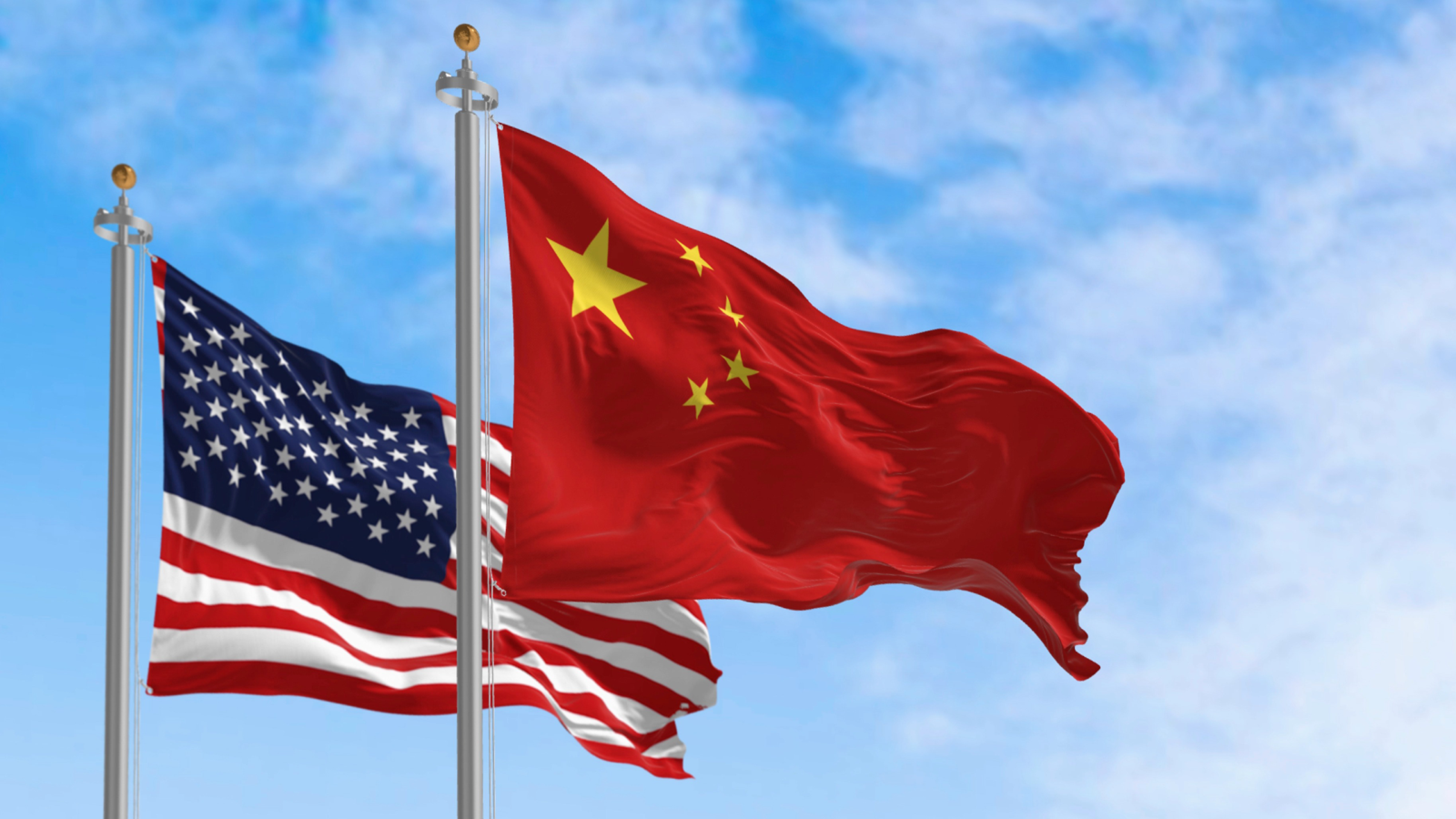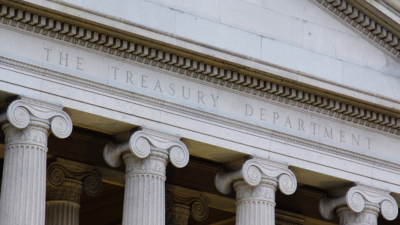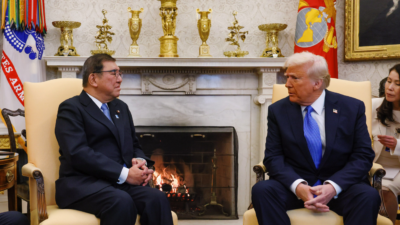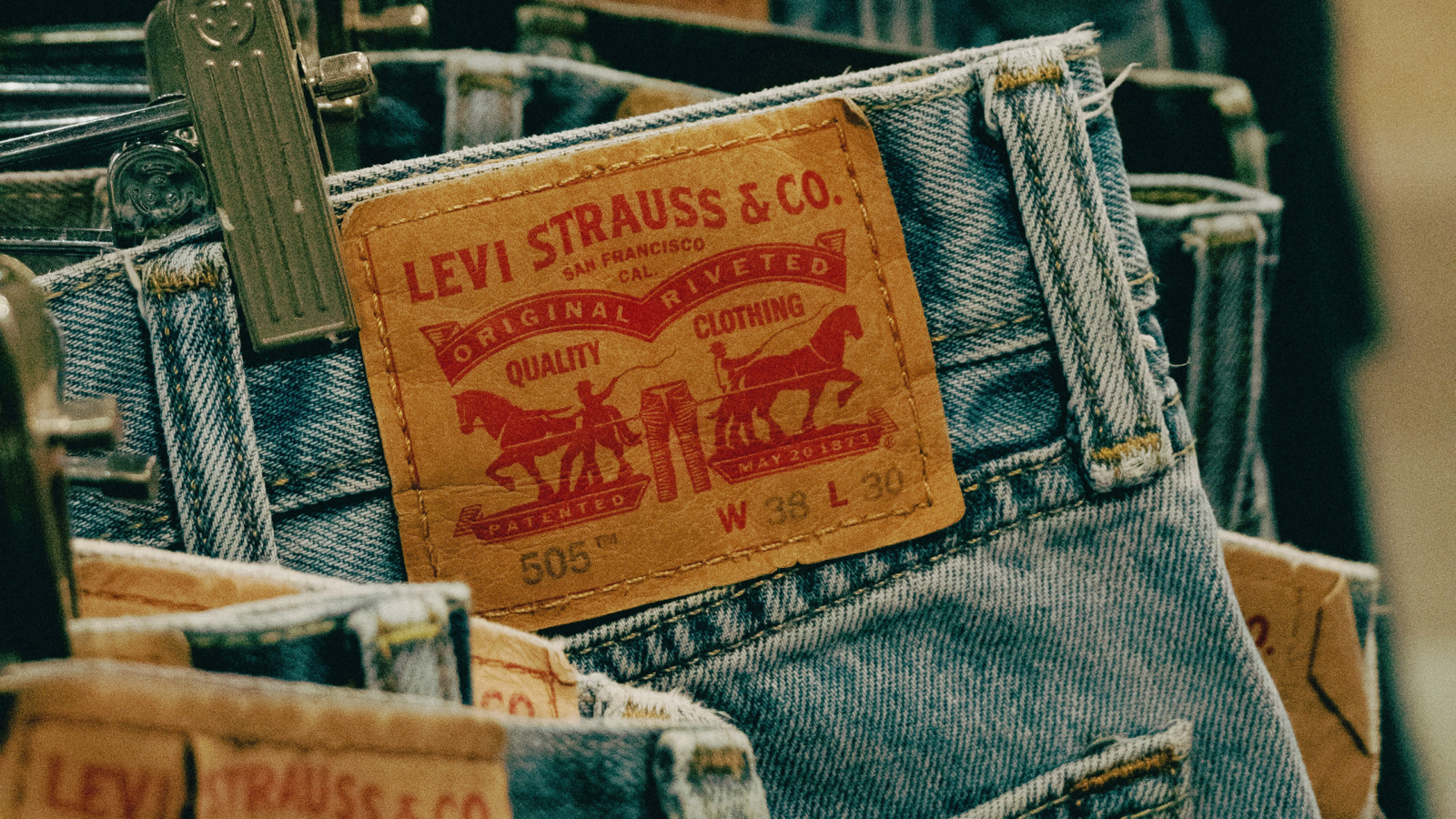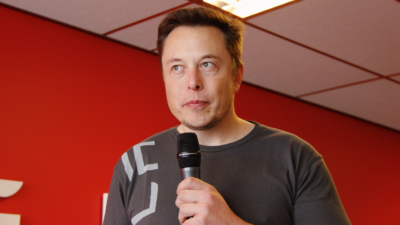Nvidia’s Situationship with Beijing Gets Even More Complicated
CEO Jensen Huang is said to have traveled to Beijing, where the Financial Times reported he met with DeepSeek’s founder.
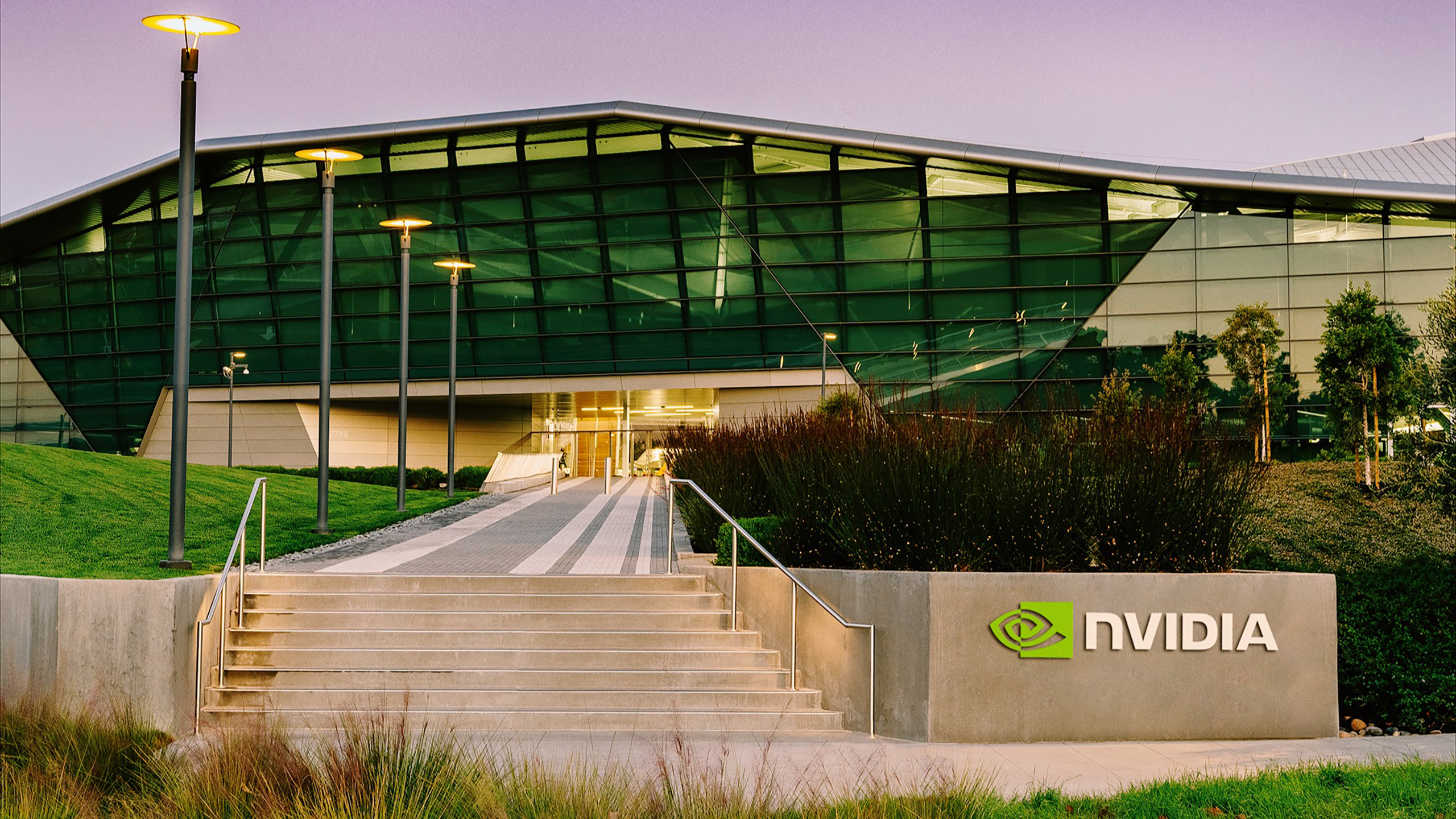
Sign up for smart news, insights, and analysis on the biggest financial stories of the day.
Nvidia CEO Jensen Huang’s zipping up his black leather Tom Ford jacket as his relationship with the Trump administration gets chilly.
A House committee focused on national security opened an investigation into Nvidia this week, probing the chip companies’ sales to Chinese AI startup DeepSeek. Also this week, Huang is said to have taken his PJ to Beijing, where the Financial Times reported he met with DeepSeek’s founder.
It’s the latest escalation in a tiff between the US and Nvidia, as the federal government tries to prevent China from getting its hands on semiconductors it says could be used to build military supercomputers.
Nvidia’s Un-Enviable Month
The US government told Nvidia earlier this month that it must get a license to sell H20 chips to Chinese companies, the chipmaker disclosed on Tuesday.
Nvidia’s stock slid after it said the requirement means its first-quarter earnings will take a $5.5 billion hit. The H20 chip, the most advanced AI chip Nvidia is allowed to sell in China, generated an estimated $12 billion to $15 billion for the company last year. Nvidia is said to have already had $18 billion in orders penciled in this year.
The gist is that it isn’t easy to break up with the world’s second-largest economy:
- China is Nvidia’s fourth-largest market behind the US, Singapore, and Taiwan, with Beijing bringing in $17 billion of revenue last year or 13% of the company’s total.
- Nvidia has been steadily losing sales in the country as restrictions ramp up; two years ago, China accounted for more than a quarter of its revenue.
Meanwhile, Nvidia has been bobbing and weaving to comply with US export curbs. The company built two chips to meet Biden-era requirements that have since been added to the no-ship list. DeepSeek said it used one of those chips, along with H20s, to build its AI model. The Commerce Department is investigating whether DeepSeek also tapped advanced Nvidia chips it smuggled in from other countries.
An underground market for the chips has cropped up in China, with Reuters reporting in January that China’s government and military have both bought Nvidia’s top-of-the-line chips via other countries since export bans kicked in.
Curbed Enthusiasm: The H20 is one of the less powerful chips in Nvidia’s lineup, far less advanced than the A100 and the H100, which are used by companies like Meta and OpenAI. Going after the weakest link in Nvidia’s lineup would essentially stop all of the company’s AI-related sales to China, according to Stratechery (gaming chips are still allowed for now). At the same time, an H20 ban could boost sales for Chinese chip-makers like Huawei, which have churned out their own advanced AI chips in recent years to fill the market gap left by Nvidia. Between underground workarounds and the rise of rival tech, it’s unclear how effective export curbs have been at limiting China’s AI advances.

